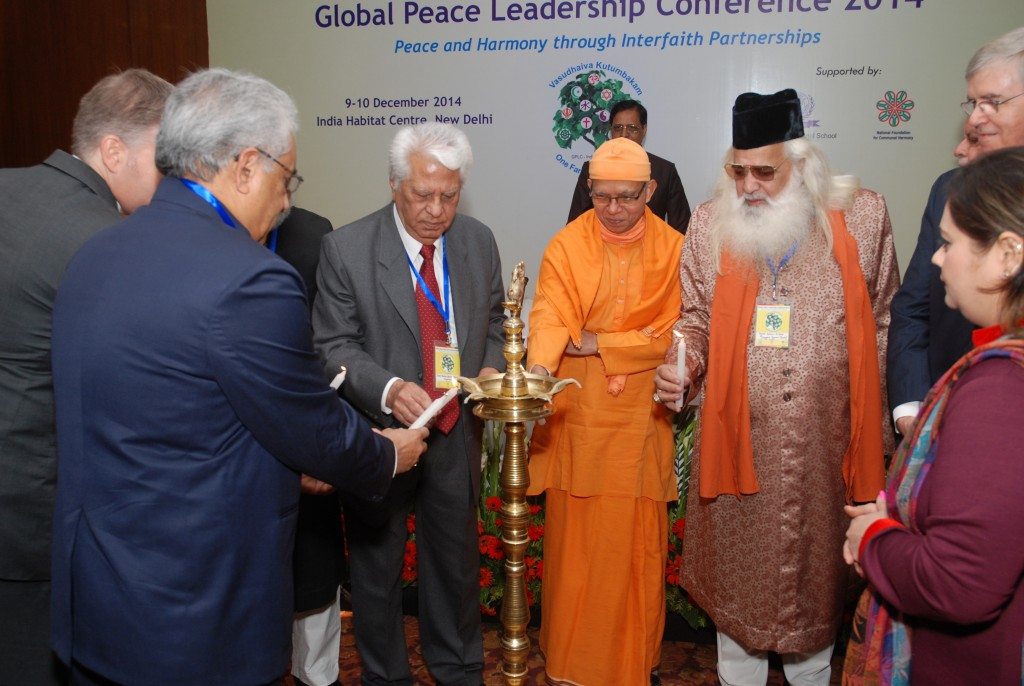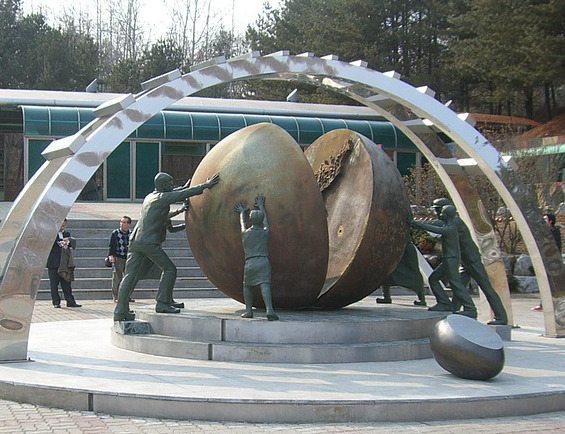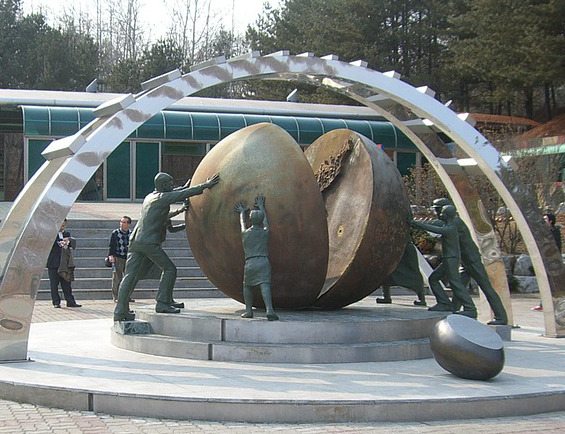
Interfaith leaders lighting the candle at the commencement of the Global Peace Leadership Conference.
The Korean Dream Dr. Hyun Jin Moon speaks of in his book dates back to the original founding of the nation and yet, it is also timeless in the sense that it reflects humanity’s greatest dream of peace. The ideal of One Family Under God reverberates throughout the world: in India and Nepal we see Vasudhaiva Kutumbakam (“The world as one human family”); across the continent of Africa we see the ideal of an intrinsic, spiritual interconnectedness (“Ubuntu”, “Ujaama”, “Umoja”, “Hunhu”, etc) and even in the all the different faith communities we see the bonds of family emerge out of a sense of shared beliefs and practices.
In our work around the world, we see this eternal aspiration.
This parallels the ideals of the Korean people, who have been as one people, with a consciousness of a shared national identity forged over 5,000 years of history as the people of Dangun and the proud inheritors of the principles of Hongik Ingan. Yet, just as Jesus had proclaimed, “a house divided against itself will not stand”, currently Korea stands divided – in more ways than one – and as such, unable to truly fulfill its destiny to serve all humanity.
As such, reunification becomes a natural course of action, even when considering the challenges and short-term obstacles involved. The security of the two Koreas, the whole Northeast Asia region and global peace and development as a whole is directly threatened by the current North Korean regime. Korean unification needs to be initiated, supported and sustained by Korean civil society organizations and Koreans across the globe. Any other course of action would mean that Korea would, once again, lose control over its own destiny.
Moreover, the pursuit of two essentially diametrically opposed political, economic and social systems over the course of 70 years presents the very unique challenge and opportunity to recreate a nation based upon a common vision, universal principles and shared values of One Family Under God.
The success of this re-creation process can then serve as a template for other societies to rediscover their own native, indigenous spiritual foundations to create inclusive, ethical and prosperous societies based on vision, principles and values. In this sense, the peaceful resolution of 70 years of division can contribute to the well-being of the global community and, in so doing, fulfill Korean’s destiny to “bring broad benefit to humanity”.


